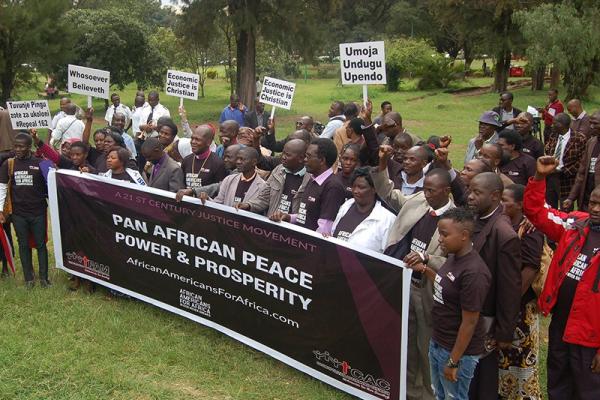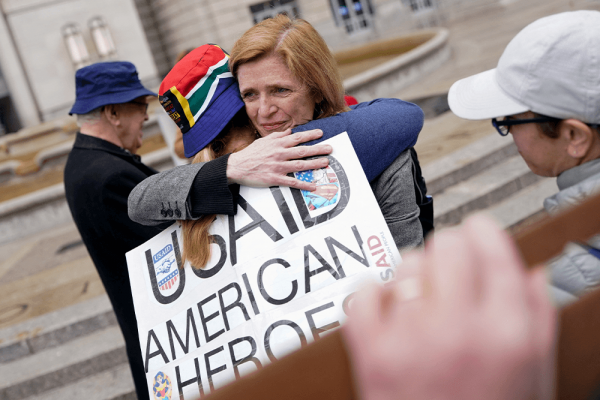A network of progressive churches in the United States, inspired by the success of the movie Black Panther, has joined with over 100 Kenyan church leaders in a march to promote a global movement on Pan-African peace, power, and prosperity.
The procession in Nairobi on March 27 was part of the activities indicating a growing positive response to the movie, which stars Kenya’s Lupita Nyong’o alongside Chadwick Boseman, Michael B. Jordan, and Letitia Wright.
Building on the popularity of Black Panther, a superhero film packing movie theaters since opening in the U.S. in February, the organizers said they hope to shape a movement that celebrates Pan-African economic, spiritual, and social power.
“I have been basking in the glow of the wildly affirmative reaction of black Americans to the Black Panther movie,” said Bishop Joseph Tolton of the Fellowship of Affirming Ministries, the U.S.-based network of progressive churches.
“This is more than entertainment property, but the signal and seeds that our people are more inclined toward Pan-Africanism than ever before.”
The Black Panther passion suggests that black people across the world are ready to determine their destiny, said Tolton, a global justice speaker.
“I think it’s important that we do not let the interest in Black Panther go without harnessing that moment to transform it from just a cultural movement into a sustained movement,” he said.
The Nairobi march came barely a month after Tolton’s network launched African Americans for Africa, an initiative supporting Pan-Africanism, and a week after the unveiling of the African Continental Free Trade Area in Kigali, Rwanda.
The campaign and the African trade pact are crucial to any Pan-African renaissance, according to the organizers.
Tolton said the priorities in the campaign are economic issues and human rights (including LGBTI rights), with special emphasis on the rights of women.
“It is very important that Africa seizes this moment, in particular when China is starting to outsource many of its manufacturing jobs in the way that the United States did 30 years ago,” he said.
“So Africa has a window of opportunity to train its labor force in skills that are necessary to produce goods that China cannot produce anymore,” he said.
Kenyan church leaders in the march said they wanted a new day of justice and reconciliation in their country and a new sense of unity among people of African descent.
They called on Kenya President Uhuru Kenyatta and main opposition leader Raila Odinga to unite and reconcile the nation as part of the campaign.
Calling for more middle-class jobs, they praised the African Union’s Continental Free Trade Area as a way for Africans to take control of their future. They also called for a new approach to combat and prevent HIV/AIDS infections.
“We are marching to call and support the Pan-African peace, power, and prosperity. Religion continues to be one of the major decisive elements in policy for African states,” said David Ochar, a pastor from Nairobi’s Cosmopolitan Church, while speaking on behalf of the other leaders.
“As faith leaders, we have largely become partisan and fanned division instead of becoming a united force for unity, reconciliation, and growth.”
According to Ochar, with the momentum of Black Panther, Kenyan religious leaders are convinced that an African renaissance can help the continent realize its political, spiritual, and economic power.
Pastor Grace Gitau, a minister in a local church in the Nairobi suburbs, said the march and the campaign were relevant to her work as a religious leader.
“We often teach about ending poverty, human rights, and inclusion of all people. I think it’s important for our work,” said Gitau.
Got something to say about what you're reading? We value your feedback!






